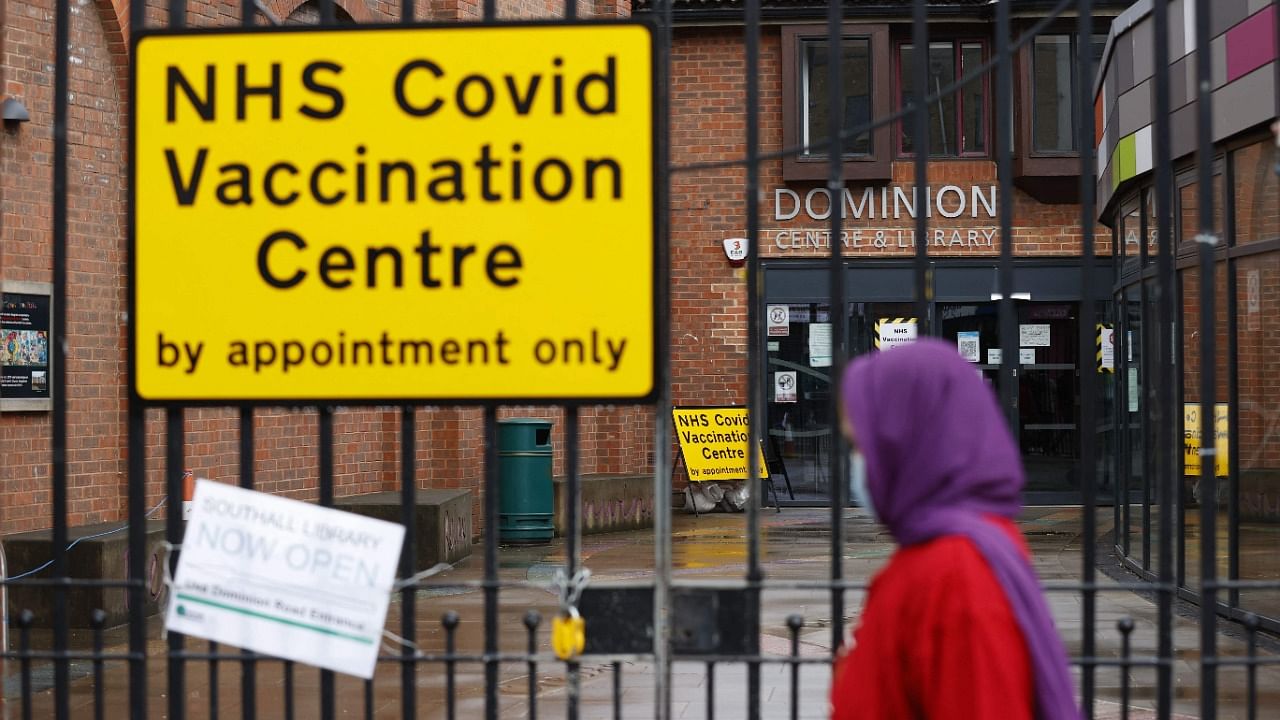
The Delta variant of Covid-19, or the B1.617.2 highly transmissible variant of concern (VOC) first identified in India, has now become the dominant VOC in the UK and may also come with an increased risk of hospitalisation, health officials in Britain have warned.
According to Public Health England (PHE), which monitors all Covid variants in the country, Delta variant infections rose by 5,472 in a week to hit a total of 12,431 on Thursday. The latest statistics have led experts to conclude that Delta is now closing in to overtake Alpha – the VOC first detected in the Kent region of England.
“With this variant now dominant across the UK, it remains vital that we all continue to exercise as much caution as possible,” said Dr Jenny Harries, Chief Executive, UK Health Security Agency.
“The way to tackle variants is to tackle the transmission of Covid-19 as a whole. Work from home where you can, and practice ‘hands, face, space, fresh air’ at all times. If you are eligible and have not already done so, please come forward to be vaccinated and make sure you get your second jab. It will save lives,” she said.
PHE also said early evidence suggests there may be an "increased risk of hospitalisation" with Delta compared to Alpha, "although more data is needed for us to have more confidence in that finding".
According to the breakdown of official figures, this week 278 people with the Delta variant attended hospital in an emergency. Last week, 201 people attended hospital.
“Once again, the majority of these had not been vaccinated,” PHE said, in reference to its previous studies which showed that two doses of the Covid-19 vaccines are “highly effective” against the Delta VOC.
The areas most affected by the Delta variant remain in the northwest of England with Bolton, where cases have risen by 795 to 2149, and Blackburn with Darwen which has seen 368 new cases, bringing it to 724 in total.
PHE said there are “encouraging signs” that the transmission rate in Bolton has begun to fall and that the actions taken by residents and local authority teams have been successful in reducing spread.
Experts continue to urge people to “remain cautious” as the country approaches the next stage of the roadmap, with June 21 scheduled as a date for an end of all lockdown restrictions.
“Variant cases are on the increase in several areas and it is absolutely crucial that everyone plays their part in preventing their spread,” PHE said.
The news raises serious questions about the plan to lift all remaining coronavirus restrictions in England on June 21.
The decision to move ahead with that timeframe has not yet been finalised, UK Health Secretary Matt Hancock said on Thursday, adding that the government continues to monitor the data.
"We haven't actually made the decision yet. We have said that the remaining restrictions will not be lifted before 21 June and we'll set out over the next couple of weeks whether the data will justify that," Hancock told CNN.
"We take the approach in the UK that we set out when things will remain in place until, and then we follow the data as to whether it's safe to lift those restrictions," he said.
Meanwhile, in Bolton, local teams have gone door to door in targeted areas on consecutive weekends to distribute test kits, share vital safety messages and encourage people to get the vaccine at a local drop-in centre.
Take up of both testing and the vaccine was described as "positive".
Blackburn with Darwen has also seen local teams making door-to-door visits, and over 10,000 additional PCR tests have been given out.
Mobile testing units have been deployed to the area and wastewater sampling continues, in order to track the spread of the variant.
PHE said its health protection teams continue to work with local authorities and schools to carry out surveillance of Covid-19 cases in schools to understand and reduce transmission in these settings. It found outbreaks and clusters in primary and secondary schools are at low levels but has seen a “slight increase” over recent weeks, in line with higher levels of the Delta variant circulating in the community.